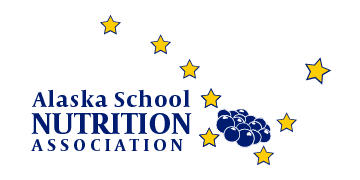For Immediate Release
Media Contact
Marybeth Whalen
Email: marybeth_whalen@lksd.org
Alaska School Nutrition Association Encourages Adequate Meal and Recess Times, Commends Anchorage School District’s Wellness Initiative
Anchorage, AK – November 25, 2019 – In September, the Anchorage School District released a statement detailing a new program in 20% of its schools. ASD and partner organization ASD60 are partnering together on the Wellness Initiative, a “pilot program that is looking at the benefits of increased physical activity throughout the day and increased time for students to eat.” 21 of the school district’s 102 schools are participating in the program.
The ASD press release cites both the US Department of Health’s Office of Disease Prevention & Health Promotion’s 2018 Physical Activity Guidelines and the Centers for Disease Control (CDC) in their respective recommendations for “children and adolescents [to] engage in 60 minutes or more of moderate to vigorous physical activity daily”, and that “students have at least 20 minutes once they are seated to enjoy their meals and socialize.”
According to Melanie Sutton, ASD’s Health and Physical Education Curriculum Coordinator, “all the data is being collected and studied throughout the year. The District will be looking at how added lunch, recess, and physical activity is affecting reading scores, classroom and student behaviors, classroom management, and scheduling.”
At the end of ASD’s data collection period, both an internal evaluator and an evaluator from Harvard University will look over the results and compare them to similar programs elsewhere in the United States. Should the data suggest the extended lunches and recess has a positive effect on students, ASD has said they will look at implementing the Initiative districtwide. “Bottom line,” said Sutton, “we want to do what’s best for our students and make sure we are giving them the education and learning environment so they can succeed in life.”
The Wellness Initiative’s goals align with the recommendations of the School Nutrition Association’s 2019 position paper, which states “Research demonstrates that school breakfast and lunch programs support obesity prevention, student health and academic achievement. Schools must ensure students have adequate time to consume these meals.”
In addition to time considerations for foods like fresh fruits and vegetables that are high in fiber and take longer to eat, SNA insists that “any effort to address time to eat must focus on “seat time”, as lunch periods also require time for students to get to the cafeteria and collect their meals.”
The Alaska chapter of the School Nutrition Association (AKSNA), SNA national, and the Wellness Initiative program at the Anchorage School District all strive to find best practices to implement CDC recommendations that children get “sufficient time to receive and consume a meal with at least…20 minutes for eating lunch after being seated.”
AKSNA commends the Wellness Initiative for its study of best practices, and recognizes the complexities of setting schedules and serving students in a timely fashion under sometimes overcrowded and challenging circumstances. AKSNA looks forward to learning from the Wellness Initiative program along with all school nutrition professionals and educators.
##
AKSNA is the state affiliate of the School Nutrition Association (SNA), a national, nonprofit professional organization representing more than 58,000 members who provide high-quality, low-cost meals to students across the country. Recognized as the authority on school nutrition, SNA has been advancing the availability, quality and acceptance of school nutrition programs as an integral part of education since 1946.

